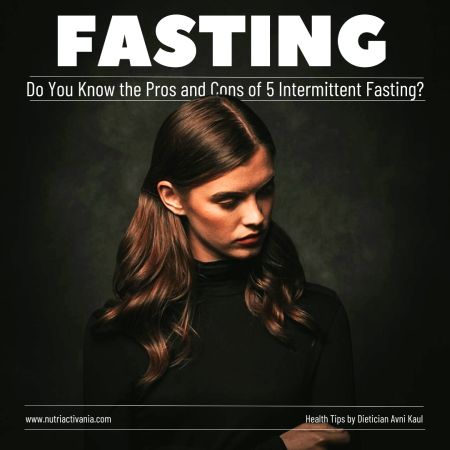
Since time immemorial, fasting, or voluntary abstinence from food and drink for a certain period, has been a significant practice across various cultures and religions, symbolizing spiritual growth, self-discipline, and empathy. In recent years, fasting has evolved from a traditional practice to a modern fitness trend, with intermittent fasting gaining popularity worldwide. Research indicates that this unique eating pattern can aid in weight loss, improve metabolic health, manage stress, protect against diseases, and potentially extend lifespan. Let us find out the pros and cons of intermittent fasting from an expert dietitian and nutritionist in Delhi for weight loss, Avni Kaul.
Intermittent fasting (IF) is a popular dietary approach that emphasizes time-restricted eating, cycling through periods of fasting, and feasting. Instead of focusing on what to eat, Intermittent fasting specifies when to eat, with fasting periods typically lasting between 12 and 40 hours. The most common method is the 16/8 approach, where individuals eat within an 8-hour window and fast for the remaining 16 hours daily. Other variations include fasting on alternate days or specific days of the week. This method of strategic eating has gained global attention for its simplicity and potential health benefits.

Avni Kaul is a leading Dietitian & Nutritionist in Delhi NCR and the Founder of Nutri Activania. She holds a Master's Degree in Food and Nutrition from the University of Delhi and is a Certified Diabetes Educator from Project Hope and the International Diabetes Federation.
Her extensive experience includes serving as a Leicester Mamma's Ambassador, trained in Lactation Counselling with the NHS, United Kingdom.
Ms. Kaul specializes in key areas such as Infant and Young Child Feeding Practices, Pre- and Post-natal Diets, Fat Loss, Muscle Gain, and Holistic Health and Nutrition.